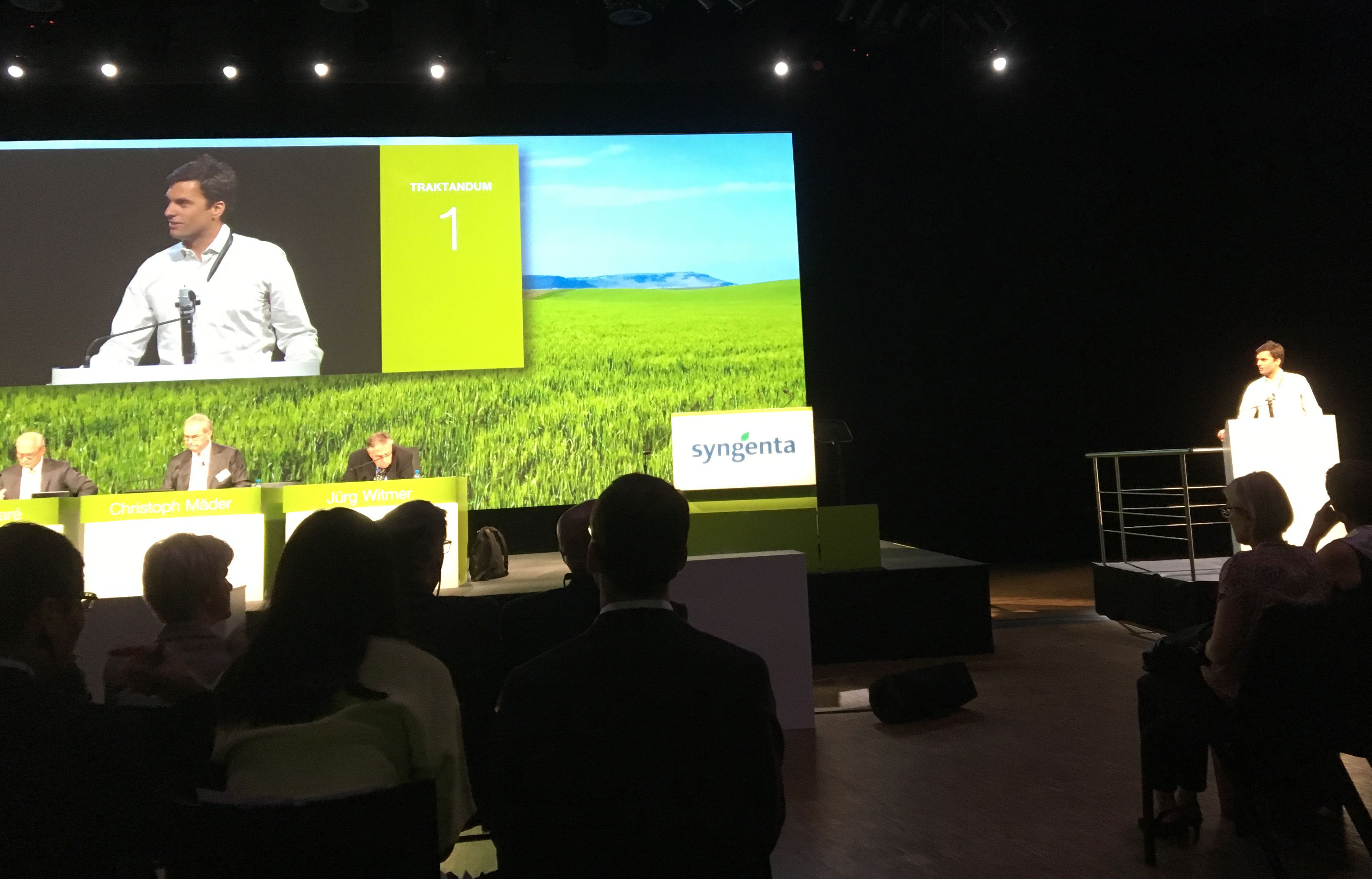Syngenta is now in Chinese hands, but will the company finally stop producing Paraquat?
June 29, 2017

There was a strange atmosphere in the room at the Centre des congrès in Basel last Monday 26th June at the most recent Syngenta Annual General Meeting, the last before the company will be taken over by Chinese ownership. Only a dozen shareholders attended the meeting, as the others had, for the most part already sold their shares. Jianxin Ren, the current President of the Chinese state conglomerate now holds almost 96% of the shares. He sat in the front row, surrounded by the closest members of his team, patiently waiting for the official announcement to be made, appointing him as head of the company.
Beyond soft talk
In his last speech as head of the Syngenta Board, Michel Démarré said how proud he was of having been at the head of a company that is committed to food security, sustainable agriculture and innovation. However upon closer examination, the Basel-based multinational corporation has introduced only seven new active ingredients since 2000, and still continues to sell very old pesticides such as Paraquat, first sold in 1962. Let us also bear in mind that 45% of Syngenta’s turnover is from two crops: soy and maize which are used primarily not to feed people, but rather for biofuel and animal feed. Finally, UN experts again provided evidence in a recent report to the Human Rights Council of the “catastrophic impacts" of pesticides on human health and the environment before going on to emphasize that
The assertion promoted by the agrochemical industry that pesticides are necessary to achieve food security is not only inaccurate, but dangerously misleading
Global leader in the pesticide market
In its annual report, Syngenta announced annual sales slightly down in 2016. Earnings before tax were however stable at 2.7 billion dollars. With almost 10 billion dollars in sales, the Basel-based giant remains number one on the global pesticide market, ahead of Bayer and BASF. Syngenta produces some 120 active ingredients that are used in its pesticides. Around 40 of these are considered as “highly hazardous”. These include Paraquat, one of the most toxic pesticides in the whole world, and the cause of thousands of cases of poisoning every year. A growing number of scientific studies also point to it leading to the onset of Parkinsons’ disease.
Grotesque figures and a misguided approach
Public Eye intervened in the Annual General Meeting to remind people of the hard reality: pesticides are the cause of 200 000 deaths due to acute poisoning every year, and 99% of these cases take place in developing countries. As global market leader, Syngenta bears a heavy responsibility. In response to criticisms, the company adopted the objective of training 20 million people in the safe use of its products by 2020. It stated that it had already trained 17 million people in the last three years – or an average of 20 000 people a day! Over and above these figures that need to be treated with caution, this purely training-centred approach is fundamentally flawed: as the FAO explains in its guidelines, risk reduction from highly hazardous pesticides should not focus on training users, but rather on their substitution by less harmful alternatives. In other words: the safe use of highly dangerous pesticides is a myth, especially in developing countries where regulations are often weaker and less strictly applied.
Double-standards: for how long?
Paraquat is banned in over 40 countries, including the European Union and Switzerland, for many years. It has also been banned last year in China. The decision taken by the Chinese government was “to protect the health and safety of its people”. This dangerous product is therefore currently banned in the country where Syngenta has its headquarters, in the country where its sole shareholder is based, and in the countries where its main production sites are based. Public Eye called upon the new owners of the company to end this hypocrisy and stop these shameful sales once and for all.

